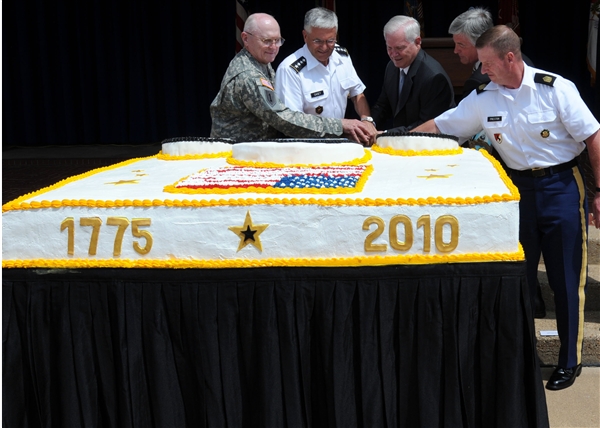WASHINGTON, July 27, 2010 — Marine Corps Gen. James N. Mattis called for harmony and consistency in the U.S. Central Command area of operation today, citing the need for continued military, civilian and regional cooperation to successfully drive out extremism.
Mattis, who serves as both the NATO supreme allied commander for transformation and commander of U.S. Joint Forces Command in Norfolk, Va., appeared before the Senate Armed Services Committee. He is being considered for re-appointment to the rank of general and to head Centcom.
“The wars we are fighting require highly integrated military efforts from the highest to the lowest levels,” Mattis said in his opening remarks. “If confirmed, I will make every effort to work closely with civilian and military leaders charged with leading our operations, and to ensure they are fully resourced in a coherent and comprehensive manner.”
Al-Qaida and other extremist groups pose a threat that spans the entire Centcom region and beyond, the general said. Combating that threat requires constant pressure by coalition partners, he added.
“Consistency in our approach and harmony in our relationships are fundamental to achieve unity of efforts in a region vital to our national interest and those of the international community,” he continued.
President Barack Obama nominated Mattis to succeed Army Gen. David H. Petraeus, whom the committee confirmed June 30 to command U.S. and NATO forces in Afghanistan. Centcom oversees all U.S. military operations in the Middle East and Central Asia, including Iraq and Afghanistan.
Managing efforts in Afghanistan will be among Mattis’ top priorities if confirmed, he said.
“The stakes there are high,” the general said. “The military component in our strategy in Afghanistan is sound, and requires firm execution. I support it fully.
“I believe that by steadfastly executing our strategy, we will win in Afghanistan,” he continued. “Nothing about the mission will be easy. We recognize that achieving our goals in Afghanistan requires also the enduring commitment of the international community.”
Combating extremists in Afghanistan can’t be done without a strong partnership with Pakistan, the general said. Pakistan, he suggested, has little option but to partner with the United States’ efforts because of the sacrifices innocent Pakistanis have suffered at the hands of terrorists.
“Inextricably linked to our campaign in Afghanistan is our strategic partnership with Pakistan,” he explained. “Proximity to an area with affiliated terrorists groups has dealt the people of Pakistan a tough hand geographically. Pakistan continues to endure great sacrifices in their effort to counter extremism, and I am heartened by their efforts.”
Another of Mattis’ top priorities would be continuing the responsible drawdown of forces in Iraq, he said. More than 128,000 U.S. troops were deployed there last year. The U.S. footprint has decreased to 77,000 today and is on track to reduce to 50,000 by Sept. 1. All U.S. forces must be out of Iraq by December 2011.
Iran, however, poses the greatest long-term challenge in the region, Mattis said, noting the Islamic state’s nuclear ambitions.
“[Iran] continues to threaten regional and global stability by pursuing a nuclear weapons program and by funding and arming militant proxies throughout the region,” he said. “The task of Central Command will be to counter the Iranian regime’s destabilizing activities, to deter the regime from aggression, and to work in concert with our partners in the region to advance our shared security interests.”
Despite the daunting task of addressing these challenges, Mattis said, Centcom offers an opportunity to enhance regional partnerships. If confirmed, he said, he looks forward to working with responsible and moderate groups, as well as taking the fight to their enemies.
“Our enemies’ barbaric, medieval actions offer opportunities to counter their extremist ideology,” he said. “Those who deliberately kill innocents know their politically bankrupt methods cannot win.
“We and our coalition and regional partners, by contrast, are involved in the noble cause of helping to realize a brighter future in the region and internationally,” he added.
Mattis commanded Marines in combat during the first Gulf War. He also led Marines in the early days of the Afghanistan campaign, as well as during Iraq deployments. If confirmed, he plans to leverage his 38 years of service and 30 years of experience in the region “to ethically carry out Central Command’s mission,” he said.
“Having been nominated for this position, I am extremely mindful of the extraordinary privilege it’s been to serve for over 38 years, alongside America’s finest young men and women,” he said. “I will hold our soldiers, sailors, airmen and Marines foremost in my thoughts.
“I will also provide my best professional military assessment to this committee and to our national security leadership,” he said.
Source:
U.S. Department of Defense
Office of the Assistant Secretary of Defense (Public Affairs)

 von
von 